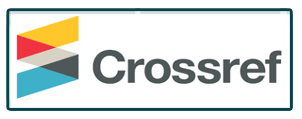Intellectual and Ideological Dimensions as Predictors of Inmates' Private Practice Religiosity
Abstract
Religiosity is critical in improving a person's self-control ability and preventing a person from committing a crime. However, studies of the dimensions of religiosity that can play a role in private religious practice are still limited. This study aims to find the relationship between the dimensions of intellectual and ideology with private practice in religiosity. This study involved three hundred samples of prisoners with measurements of intellectual dimensions, ideology, and private practices using the Centrality of Religiosity Scale (CRS). The correlation test concluded that intellectual and ideology are significantly associated with private practice. The intellectual dimension shows a more potent effect size on private practice than the ideology dimension. This study recommends the need for intellectual and ideological religious guidance programs for inmates in correctional institutions as an effort to increase self-control and prevent the residivisme
- Authors retain copyright and grant the journal right of first publication with the work simultaneously licensed under Attribution-ShareAlike 4.0 International
- Authors are able to enter into separate, additional contractual arrangements for the non-exclusive distribution of the journal's published version of the work (e.g., post it to an institutional repository or publish it in a book), with an acknowledgement of its initial publication in this journal.










.jpg)
